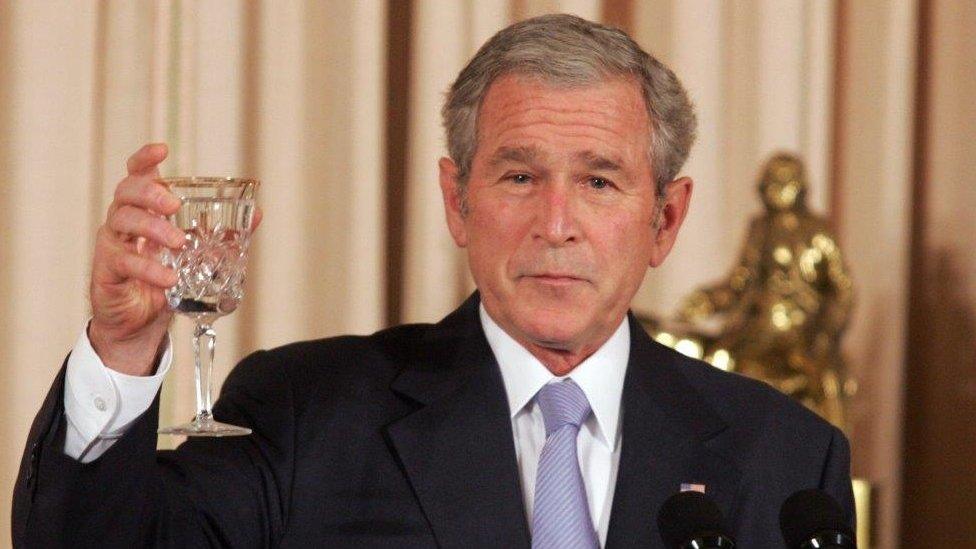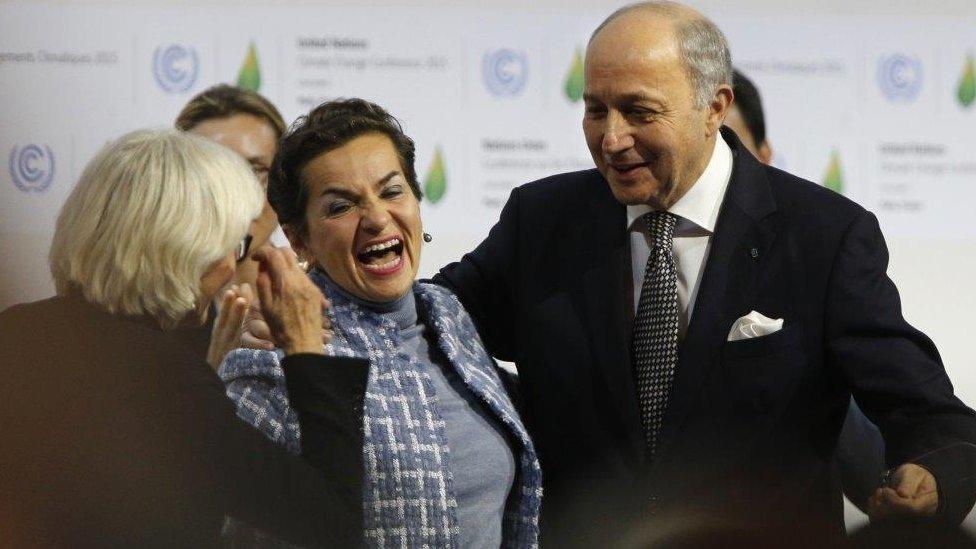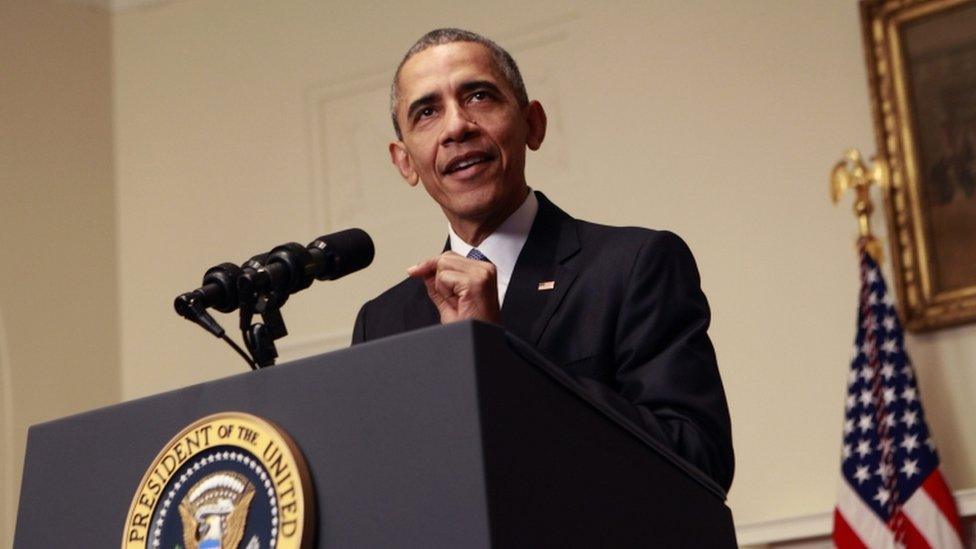Did Dubya help to save the world?
- Published
- comments

Cheers COP21! Did President Bush unwittingly play a role in developing the Paris Agreement?
Who should the world really thank for delivering a comprehensive, ambitious agreement that promises to deal with the issue of climate change over the course of this century?
Laurent Fabius? Christiana Figueres? Francois Hollande?
Certainly all three played hugely significant roles. There are many others, Al Gore, Mary Robinson, Laurence Tubiana among them.
But perhaps we should also consider another, more accidental climate change "progressive" - George W Bush?
Under the terms of the Paris deal, countries will come up with their own national proposals on cutting carbon and these will be reviewed every five years in an effort to increase ambition. These will be voluntary. The key element is the fact that this is a bottom up approach to tackling the problem.
For decades the UN tried to foster a top down solution. The world would come together and the big powers would negotiate and decide on the level of carbon cuts that needed to be made.
In Kyoto in 1997 the big three, the US, EU and Japan, worked out their commitments in exhausting late night sessions.
When President Bush took office in 2001, he immediately repudiated the Kyoto process.
For the next six years his administration was viewed as hostile in the extreme to both tackling the issue of climate change and to the UN approach.
Alternative approach
But in 2007, the President outlined an alternative way forward.

Celebrations and relief as the draft Paris Agreement was adopted
The Bush team proposed that the major global economies responsible for the vast majority of emissions come together and each publish national plans that would outline the way they would curb carbon from 2012 to 2030. The concept was termed "pledge and review".
Fast forward to December 2015 and 195 nations of the world seems to have signed up to a version of an idea cooked up by the Bush Administration to sidestep the broad based, consensus approach of the UN .
Oh the irony!
An important caveat is the role played by President Obama in taking on the Bush bottom up approach and making it something every country should implement, not just the very big emitters.
"This is sort of a new, neo-liberal way of governing climate change, it's voluntary, it's bottom up and it's not clear that it's going to deliver in the end," said Prof Timmons Roberts from Brown University in the US.
"What has surprised me this year is how much more positive 2015 is, than when this was first brought into the system in Copenhagen by Obama himself and the BASIC countries (Brazil South Africa, India and China), getting this pledge and review system in place and solidified in Cancun in 2010."
Other commentators say that while the idea may have come out of the Bush administration, the very fact that they were associated with it meant that no one wanted to touch it while he was in power.
"President Bush did absolutely nothing to support an agreement before 2009, and nothing in terms of domestic policy," said Prof Michael Jacobs, who was climate adviser to UK Prime Minister Gordon Brown at that time.
"Although the concept of "pledge and review" was popularised by him it was rejected as long as it was him that was promoting it!
"It was the Obama administration and the EU who turned it into a viable concept for the negotiations."
Odd bunch
We humans are an odd bunch - try and tell us to do something and we'll immediately resist.

President Obama's administration is credited with vital work
Ask us nicely and tell us we don't have to do it, and everybody falls into line.
This is exactly what happened with national climate plans, termed INDCs (intended nationally determined contributions).
"Nobody wants to be told what they have to do but when they are asked to come forward with some voluntary actions sometimes they will surprise you," said Prof Roberts.
"It's unbelievable that 187 countries came in with their plans - it's stunning!"
Another irony for the US is that the Paris Agreement comes under the UN Framework Convention signed by the first President Bush in 1992.
Because that treaty was passed by the US Senate, President Obama will likely be able to sign the Paris outcome without having to put it to a vote he would certainly lose.
And while he may have played a role in developing the bottom up approach, it's unlikely there were any phone calls of congratulations from Paris to the Bush home in Texas on Saturday night.
Follow Matt on Twitter @mattmcgrathbbc.

UN climate conference 30 Nov - 11 Dec 2015

COP 21 - the 21st session of the Conference of the Parties - saw more than 190 nations gather in Paris to agree new global pact on climate change, aimed at reducing greenhouse gas emissions to avoid the threat of dangerous warming as a result of human activities.
Explained: What is climate change?
In video: Why does the Paris conference matter?
Analysis: Latest from BBC environment correspondent Matt McGrath
In graphics: Climate change in six charts
More: BBC News special report (or follow the COP21 tag in the BBC News app)
